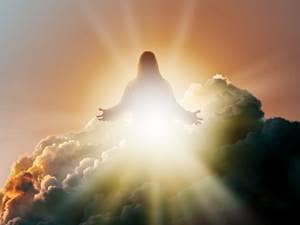
Monotheism, the belief that there is only one God
Monotheism is a foundational belief of Christianity. But if Jesus is God, the Father is God, and the Holy Spirit is God, then how can there be only one God?
The Christian belief in the Trinity in no way denies that God is one. The doctrine of the Trinity affirms that three persons (Father, Son, and Holy Spirit) eternally exist as one God. That is what tri-unity is all about: three persons and one God.
What is interesting to note is that despite the significant differences among Christians around the world on many issues, there is unity among all Christians on the belief that God is a Trinity.
The doctrine of the Trinity is affirmed by all Catholics, Orthodox, and Protestants, and the church has also affirmed it for the last 2,000 years.
The Biblical Affirmation of God's Oneness
The biblical understanding that there is only one God is unmistakable.
Deuteronomy 6:4, the first verse of the Shema, which is perhaps the most famous verse in the Hebrew Bible, says: "Hear, O Israel! The Lord is our God; the Lord is one."
The prophet Isaiah repeatedly affirms that God is one. Thus, Isaiah 44:6: "Thus says the Lord, the King of Israel and his Redeemer, the Lord of hosts: 'I am the first, and I am the last, and there is no God besides Me.'"
Isaiah 45:5 similarly affirms: "I am the Lord, and there is no other; besides Me, there is no God" (see Isaiah 43:10; 45:21-22; 46:9).
The Father, Son, and Holy Spirit Are God
At the same time, the Bible affirms that the Father, the Son, and the Holy Spirit are each individually God. Throughout the Scriptures, the Father is called God (1 Cor 8:6). Jesus, however, is also called God.
This is affirmed in the confession that Jesus is "Lord" (Rom 10:9, 13). "Lord," of course, is God's divine name. Jesus also has the attributes of God: He is "eternal" (John 8:58), "unchanging" (Heb 13:8), and "all-knowing" (Col 2:3). Furthermore, Jesus performs the acts of God: He forgives sins (Mark 2:1-9) and creates (John 1:1-3; Col 1:16). The same is true of the Spirit (see Acts 5:3-4). For example, the Holy Spirit is also eternal (Heb 9:14).
Jesus' Claims to Be God
Jesus' claims to be God almost landed Him in trouble on several occasions.
For example, in Mark 12, three different questions are brought to Jesus "in order to trap Him in a statement" (Mark 12:13).
Each question appears to be unanswerable. The first question relates to paying taxes to Rome (Mark 12:13-17). Of course, if Jesus were to say "Yes" to paying taxes to Rome, no Jewish person would believe that He is the Messiah. After all, the Messiah is the king of Israel, and affirming Rome's right to collect taxes is tantamount to affirming Rome's right to rule. If, however, Jesus says "No," then the religious leaders could accuse Him of treason against the Romans. Either way, Jesus is in trouble.
The third question, however, is puzzling. Jesus is asked, "What commandment is the foremost of all?" (Mark 12:28). The question is baffling because there is perhaps not an easier question one could ask a Jewish person in the first century. Indeed, every Jewish person knows the Shema. It was recited twice daily by all Jews. Any Jewish child who could speak had learned the Shema. In other words, there was virtually no possibility that Jesus would not know how to answer this question.
Sure enough, Jesus answers them by citing the Shema (Mark 12:29-30).
Was Jesus Claiming to Be the Lord of the Shema?
How were they attempting to "trap Him in a statement" with this question? Were they expecting Jesus to say, "Do not murder" or "Honor the sabbath day," which, while important, would hardly have been mistaken as the greatest commandment?
What, then, was the reason for this question when the question was as rudimentary as "What commandment is the foremost of all?"
The answer is likely, though space will not allow us to explore this here, that Jesus had been affirming that He was the Lord God whom they were to love. The question, then, was designed to see not if Jesus knew the foremost commandment but if He would affirm that He was the Lord they were to love.
The Mystery of the Trinity and God's Oneness
The Christian affirmation that Jesus is God in the flesh in no way undermines God's oneness. As noted above, the Christian doctrine of the Trinity affirms that three persons eternally exist as one God. That is what tri-unity is all about: three persons and one God.
One might say, "But this cannot be. Something cannot be three distinct persons and still be one in substance." To an extent, this is correct. The problem here is that we are approaching the question from this side of creation. That is, we are looking at it from the perspective of the universe (or creation) and all that is in it. Indeed, as we know, there is nothing that can be three and still one.
God Transcends Our Comprehension
But God is not a part of the creation. He is the uncreated Creator. This raises the question of whether God could be three distinct persons and still be one God. To rule this as "impossible" is to assume that what we know from observing the creation applies to God also.
Isaiah, however, makes it clear that God transcends our comprehension: "'For My thoughts are not your thoughts, nor are your ways My ways,' declares the Lord. 'For as the heavens are higher than the earth, so are My ways higher than your ways and My thoughts than your thoughts" (Isaiah 55:8-9).
If God were completely understandable in all His ways, would that not make Him finite?
The Nature of God
Does not the very nature of God as the one who exists eternally demand that there is a sense in which we are not able to comprehend Him fully? After all, as created beings, we are not able to fully comprehend only that which transcends creation. Everything we have known and experienced is created—it has a beginning and an end. How can we fathom God, who has neither beginning nor end?
The nature of God, as revealed in the Scriptures, is that He is one and yet, mysteriously, three.
In some sense, the Father, Jesus (the Son), and the Holy Spirit are three and yet one.

